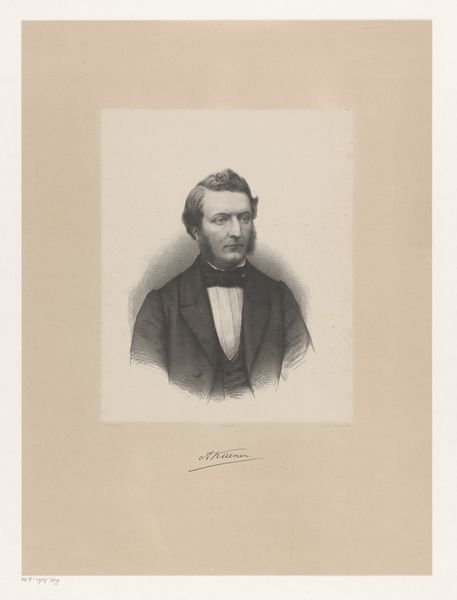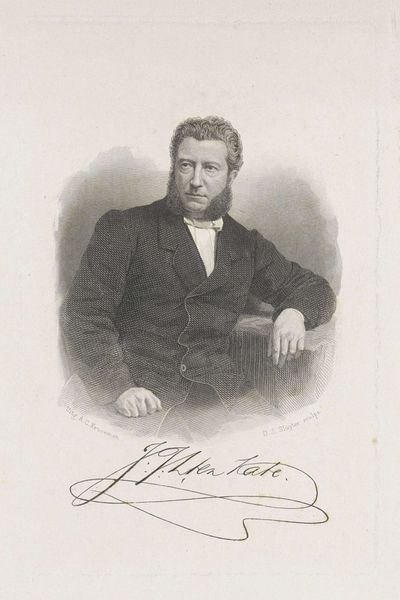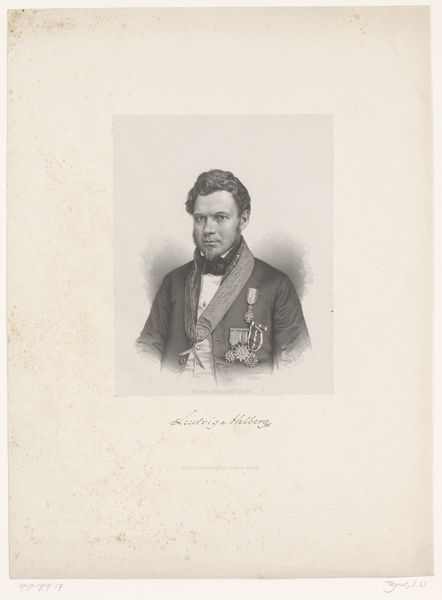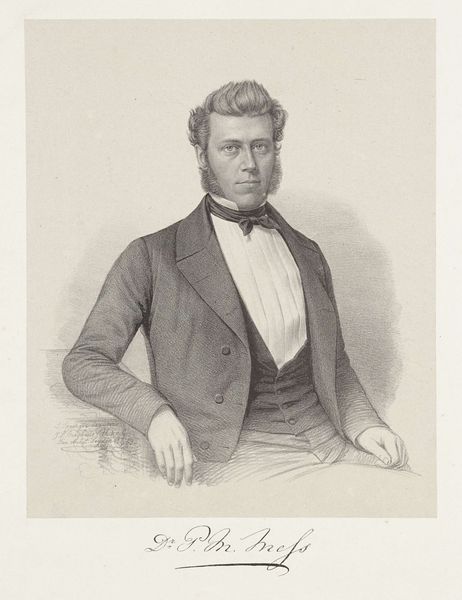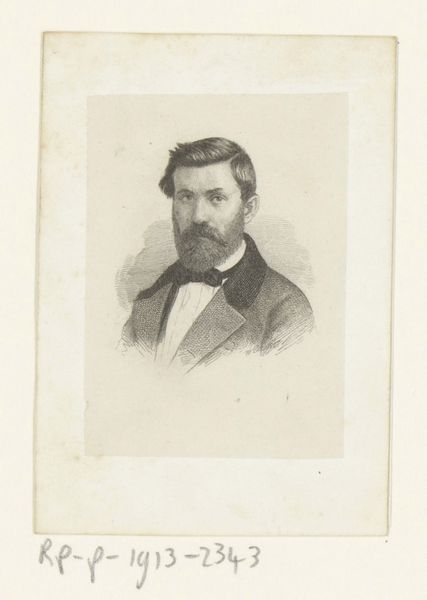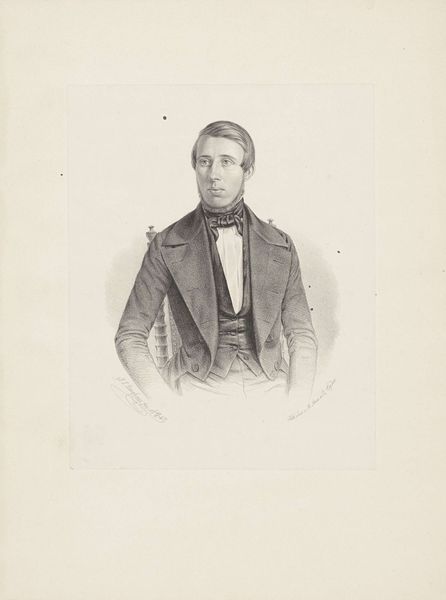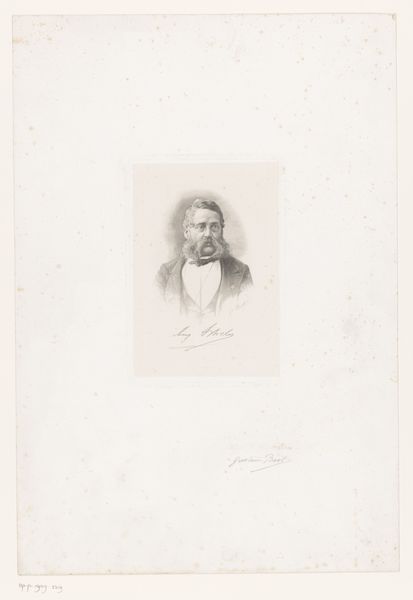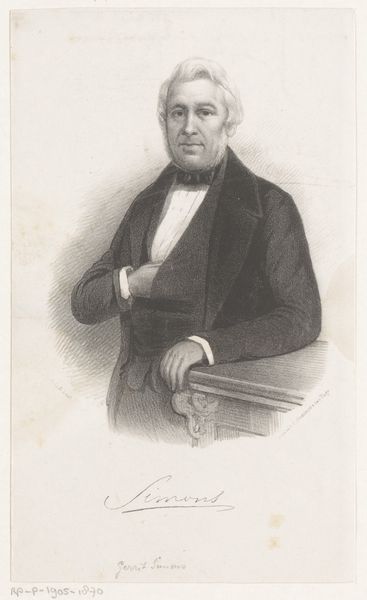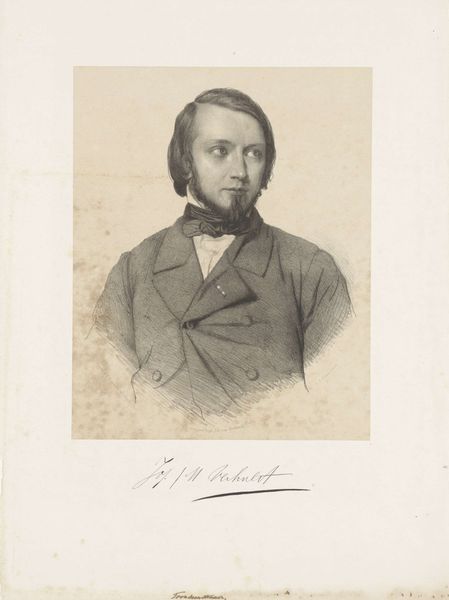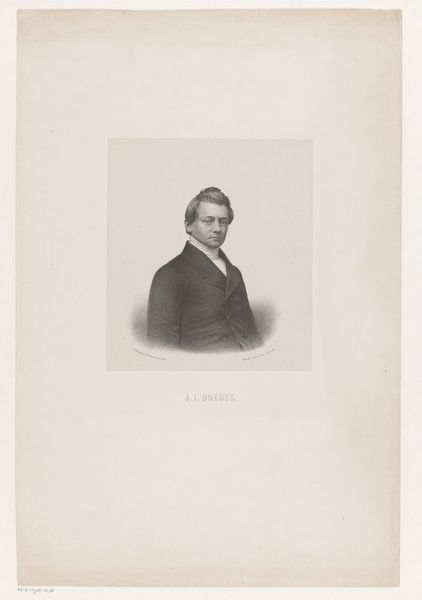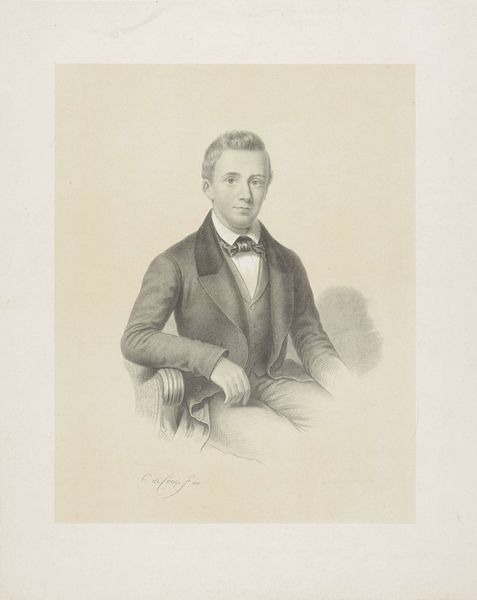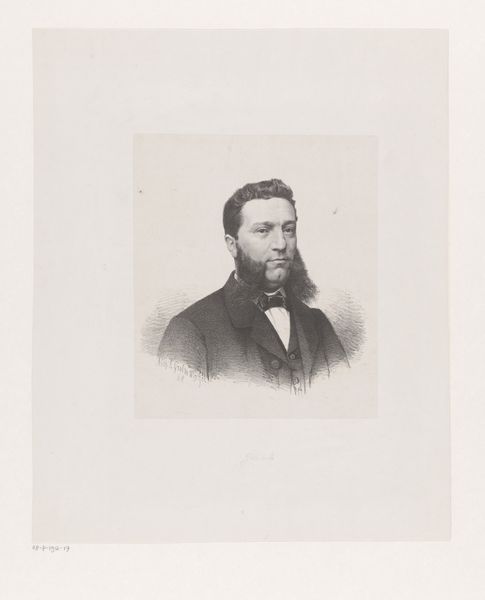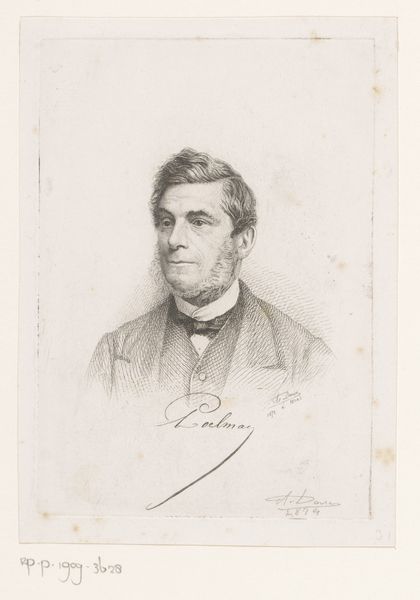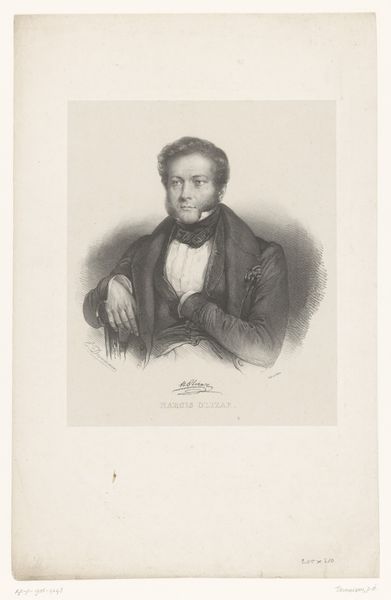
Portret van de dichter en predikant Jan Jacob Lodewijk ten Kate 1842 - 1873
0:00
0:00
dirkjurriaansluyter
Rijksmuseum
drawing, pencil
#
portrait
#
drawing
#
16_19th-century
#
pencil drawing
#
pencil
#
realism
Dimensions: height 176 mm, width 112 mm
Copyright: Rijks Museum: Open Domain
Curator: This drawing presents us with Dirk Jurriaan Sluyter's "Portret van de dichter en predikant Jan Jacob Lodewijk ten Kate," crafted with pencil between 1842 and 1873. Editor: The initial impression is one of profound seriousness, even somberness. The monochrome lends itself to gravity, and the sharp focus on the subject’s face creates a palpable sense of his presence. Curator: Indeed. Sluyter was working in a period defined by emerging industrialization and rapid social change in the Netherlands. Understanding the cultural weight of representing religious figures within the broader political shifts of the era is essential here. Editor: The artist's medium speaks volumes; the delicacy of the pencil allows a nuanced rendering of detail. Note how light and shadow shape Ten Kate's face, conveying his inner thoughts, and perhaps his religious convictions, through symbolic representation. Curator: Precisely, and beyond religious convictions, we have a glimpse of Ten Kate’s social standing. We are confronted with the role class plays in visibility, asking ourselves how identities were not just represented but carefully constructed within social and political hierarchies. Editor: The gaze certainly conveys a strong sense of moral authority, which would align with his roles as both poet and preacher. And yet, it invites interpretation. The portrait itself operates like an emblem of societal and intellectual ideals. The precise depiction speaks to a culture obsessed with capturing likeness but also imbued with meaning. Curator: I agree, the very act of portraying someone carries a weight. The artwork also begs to know, whose stories and whose images were valued, or overlooked in Dutch society at that time? Editor: The piece prompts consideration of both outward representation and internal character, inviting reflection upon not just Jan Jacob Lodewijk ten Kate's personal story but the symbolic representation of Dutch society. Curator: And reminds us to engage with those silent historical narratives—the ones still demanding acknowledgement within the canvas of today's social dialogue.
Comments
No comments
Be the first to comment and join the conversation on the ultimate creative platform.
